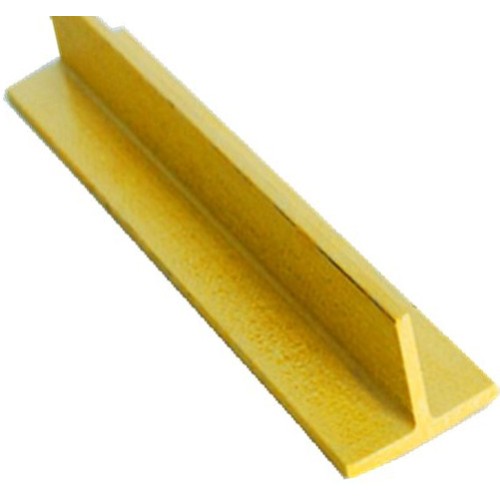Fiberglass T-Shape Profile: Definition, Applications & Advantages
The Fiberglass T-Shape Profile is a structural component engineered for high-strength, lightweight applications. Crafted from fiber-reinforced polymer (FRP), this profile combines durability with resistance to corrosion, chemicals, and extreme temperatures. Its T-shaped cross-section provides optimal load-bearing capabilities, making it ideal for frameworks, supports, and modular systems.
▌ Manufacturing Process & Material Composition
Produced via pultrusion, the fiberglass T-bar profile undergoes a continuous process where resin-saturated fibers are pulled through a heated die. This method ensures uniformity in density and mechanical properties. Unlike metals, FRP profiles avoid galvanic corrosion, reducing maintenance costs in harsh environments like marine or industrial settings.
▌ Classifications & Specifications
Fiberglass T-profiles vary by dimensions, resin type (polyester, vinyl ester), and fiber orientation. Common variants include:
- Standard T-channel fiberglass profiles (10mm to 100mm depth)
- Customized FRP T-sections with UV-resistant coatings
- Structural T-beam fiberglass for heavy-load architectures
▌ Key Applications of Fiberglass T-Profile
- Marine Engineering: Marine-grade FRP T-molding strips reinforce boat hulls and docks.
- Construction: Corrosion-resistant T-section fiberglass replaces steel in concrete forms and roofing.
- Transportation: Lightweight composite T-profiles enhance rail and automotive interiors.
- Electrical Systems: Non-conductive fiberglass T-channel safeguards wiring layouts.
▌ Fiberglass vs. Traditional Materials
Unlike aluminum or steel T-profiles, fiberglass structural T-channels offer superior strength-to-weight ratios and immunity to rust. While metals deform under prolonged stress, FRP retains shape stability, even in fluctuating temperatures. Additionally, pultruded fiberglass T-bars simplify installation with pre-drilled holes and modular designs.
▌ Why Choose Fiberglass T-Shape Profiles?
From industrial fiberglass T-supports to architectural composite T-moldings, this versatile product adapts to niche demands. Its blend of affordability, longevity, and design flexibility positions it as a sustainable alternative to traditional materials.

